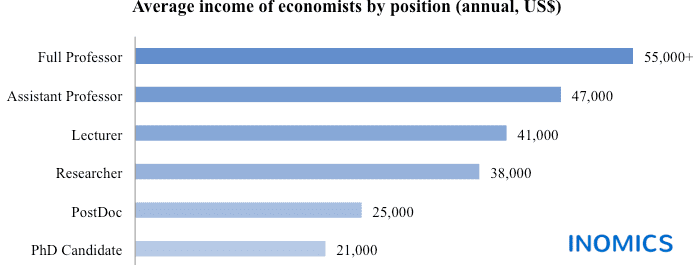The following article is archived and is no longer considered up-to-date. Please interpret its content in the context of the publishing date.

ARCHIVED
Academic Jobs and Salaries in Italy
Read a summary using the INOMICS AI tool
Many believe that once one decides to follow an academic career path there is no way out. Working at a university is not only said to bring you respect and stability, but also a gradually increasing income. How high the latter might get obviously depends on many factors, such as your qualifications and the institution you graduated from, as well as the country where you are teaching.
Looking at the findings of the INOMICS Job Market Report (which is available for free download here) we clearly see difference in wage levels across academics in different part of the world. This post is dedicated to Italy, the country with one of the lowest reported salaries in Europe (followed only by Spain).
As can be seen from the graph, the salaries are not very high in the beginning of the path and although they increase with advancements (22% increase between positions on average), Full Professors earn 55,000 US$ per year on average.
According to the INOMICS Job Market Report – Italy, the first significant increase in salary happens after working for 3 years (+70% on average), and then another 72% on average is added when you reach the level of 5 years of experience.
Such relatively low reported salaries can be explained by different factors, including, among others, the young age of the respondents (65% are below 34 years old). In order to get more information about the Job Market in Italy and also see the methodology, you can download the full report here.
-
- Postdoc Job
- (Remote)
- Posted 2 weeks ago
Vacancy for a Postdoctoral fellow
At University of Ghent in Gent, Belgique
-
- PhD Program, Program, Postgraduate Scholarship
- Posted 1 week ago
PhD Program in Economics - 6 Fully Funded Scholarships
at Luiss Guido Carli University of Rome in Rome, Italie
-
- Postdoc Job
- Posted 1 week ago
Postdoctoral Researcher (all genders welcome)
At Georg-August-Universität Göttingen in Allemagne













